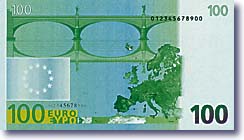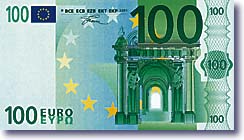



The history of the sterling exchange rateDuring the 1950s and 1960s Britain maintained a fixed exchange rate against other currencies. For example one pound was worth about 14 German marks. Britain's economy was badly run during this period, exports could not keep pace with imports growing much faster and there was an ever larger deficit of the balance of payments. Faced with this critical situation the Chancellor of the Exchequer, James Callaghan, devalued the pound by about 14% in November 1967. The prime minister, Harold Wilson, earned himself ridicule by showing up on TV and saying "Of course, this doesn't mean the pound in your pocket or purse has been devalued." The economy continued to be badly run. The UK became known as the sick man of Europe because of the country's poor industrial relations. As soon as one national strike ended with workers being awarded huge pay increases, the next strike began. The pound was now no longer fixed in price against other currencies and continued to fall. By 1990 it was only worth 2.9 German marks. In 1990 the Chancellor of the Exchequer, John Major, decided to fix the exchange rate again, this time at about 2.9 marks with at fixed rates with the other European currencies who were members of the exchange rate mechanism - and who were preparing to steady their exchange rates to prepare to join the euro. This good idea lasted only two years. John Major had become prime minister, Norman Lamont was Chancellor and in September 1992 Lamont announced that sterling would leave the exchange rate mechanism. He had little choice. Almost all the country's foreign exchange reserves had disappeared buying pounds for 2.9 marks each - ensuring that speculators like George Soros could make billions at the expense of the British taxpayer. Sterling continued to drift down to about 2.2 marks. However, during the last few years the trend has reversed. The UK economy is now managed more effectively. On the other hand, European countries have not adapted quickly to the new high tech industries and have let their businesses become clogged up with regulations. At the moment the exchange rate is about 1.6 euros, equivalent to about 3.1 marks to the pound. |